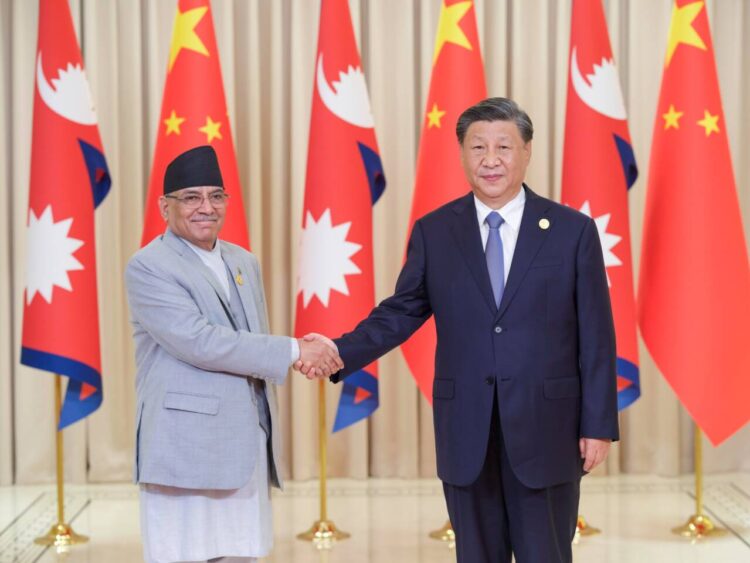On the eve of Nepal Prime Minister Pushpa Kamal Dahal ‘Prachanda’ losing a vote of confidence in Parliament, he approved a landmark agreement to link the Himalayan nation with China by rail under the Belt and Road Initiative (BRI). This strategic decision aligns Nepal with Chinese President Xi Jinping’s extensive infrastructure project, carrying significant operational implications.
According to the MyRepublica news portal, the Nepalese Cabinet, in a meeting held on Thursday, endorsed the ‘Strengthening the Development Cooperation in Building the Trans-Himalayan Multidimensional Connectivity Network’ agreement with China. Communication Minister and government spokesperson Rekha Sharma confirmed this development.
“This is an initial decision; details of project implementation and BRI modalities are yet to be finalized,” a minister remarked, downplaying its immediate impact. This agreement marks a step towards the realization of critical infrastructure projects, including the Kerung-Kathmandu railway and other developments along the Nepal-China border.
Prime Minister Prachanda lost the vote of confidence on Friday after the coalition partner Communist Party of Nepal-Unified Marxist Leninist (CPN-UML) withdrew support. This political shift paves the way for former Prime Minister K P Sharma Oli to form a new government. Prachanda secured only 63 votes in the 275-member House of Representatives, with 194 votes against him. At least 138 votes were needed to win the motion. A total of 258 members participated in the vote, with one abstention.
Prachanda’s approval of the BRI rail link agreement, just before his departure, is seen as a significant step towards advancing BRI projects in Nepal. This move is crucial for the country’s broader infrastructure development goals and represents progress in the longstanding 2017 BRI agreement with China, which had been pending cabinet approval.
The BRI has sparked global concerns over China’s debt diplomacy, with fears that large loans for infrastructure projects could lead to unsustainable debt burdens. A notable example is the Hambantota port in Sri Lanka, funded by a Chinese loan and subsequently leased to Beijing for 99 years after Sri Lanka could not repay the debt. India has also raised objections to the $60-billion China-Pakistan Economic Corridor, a flagship BRI project passing through Pakistan-occupied Kashmir.

















Comments